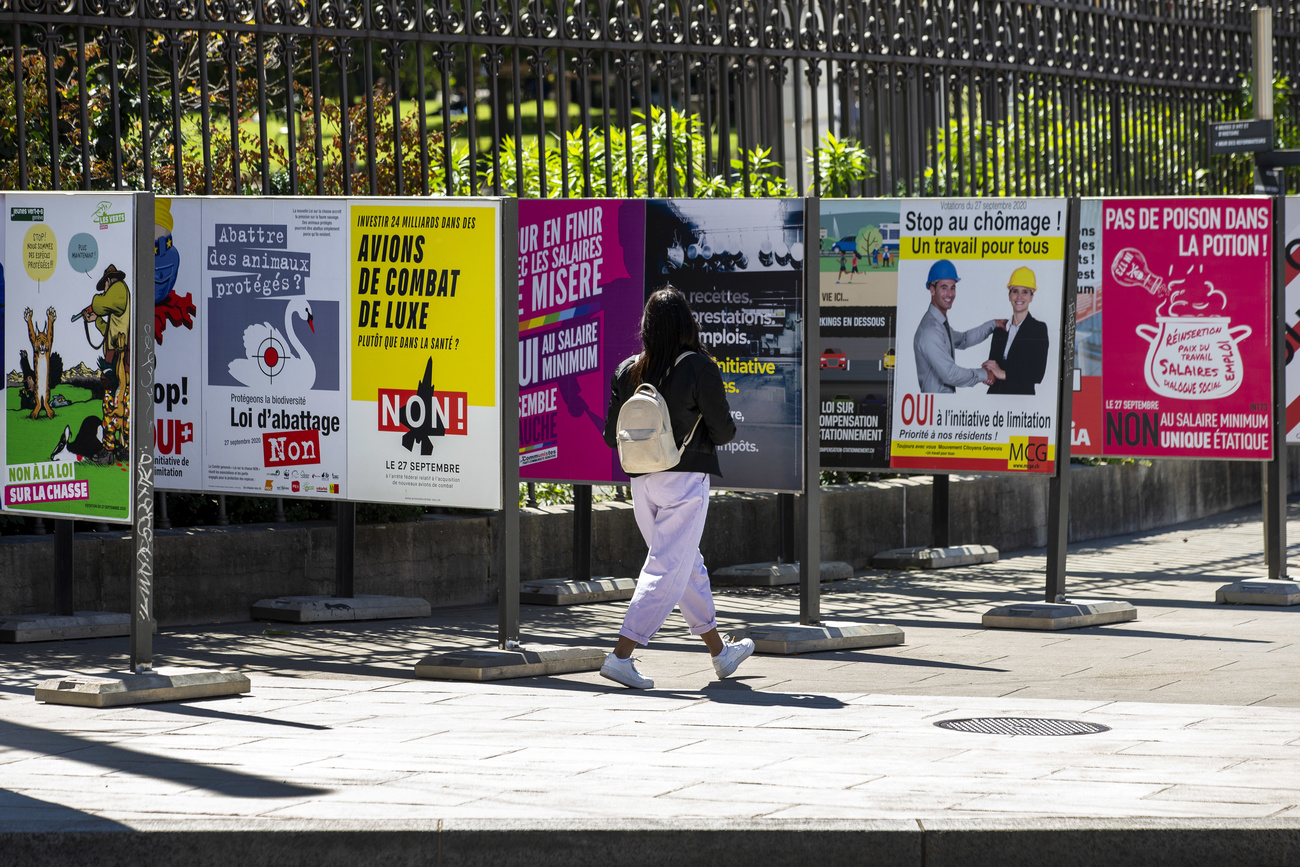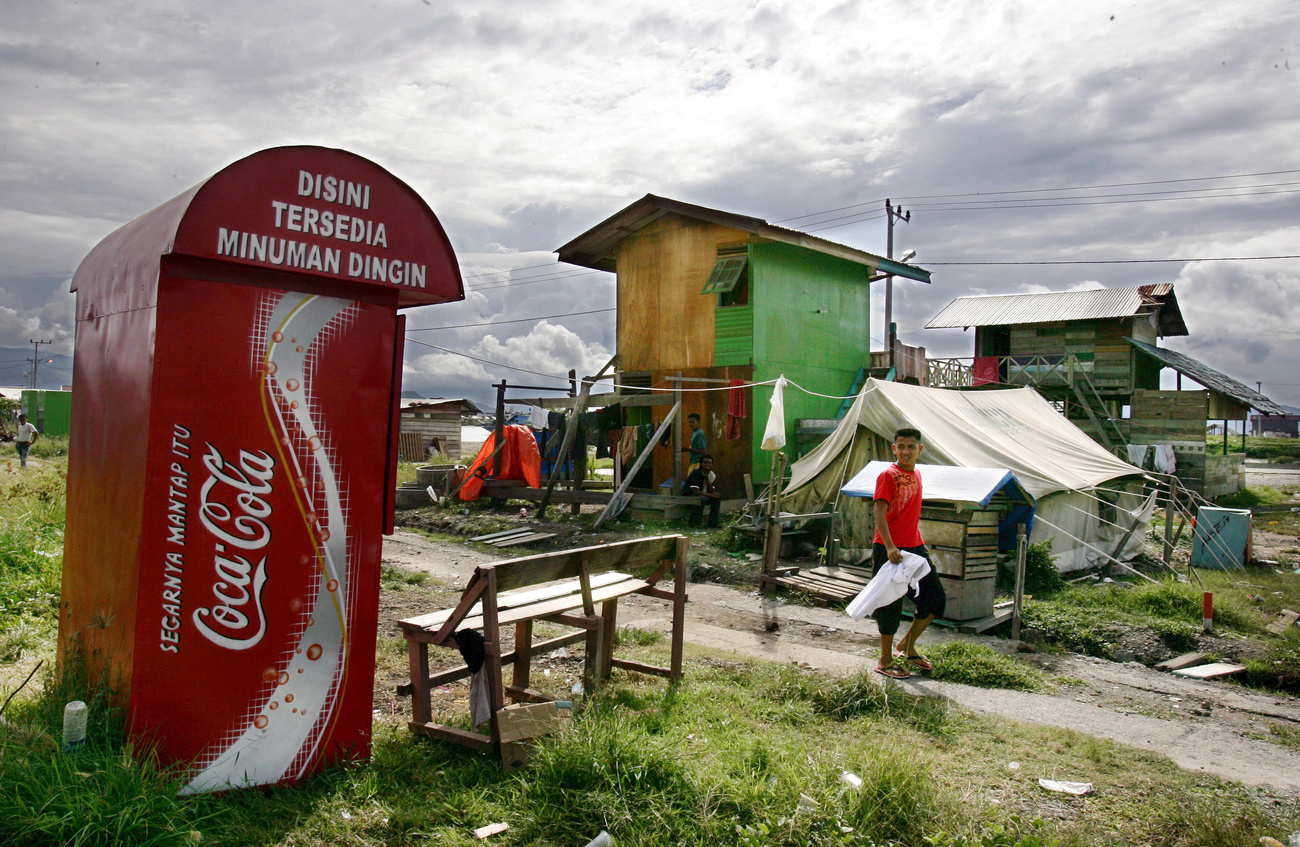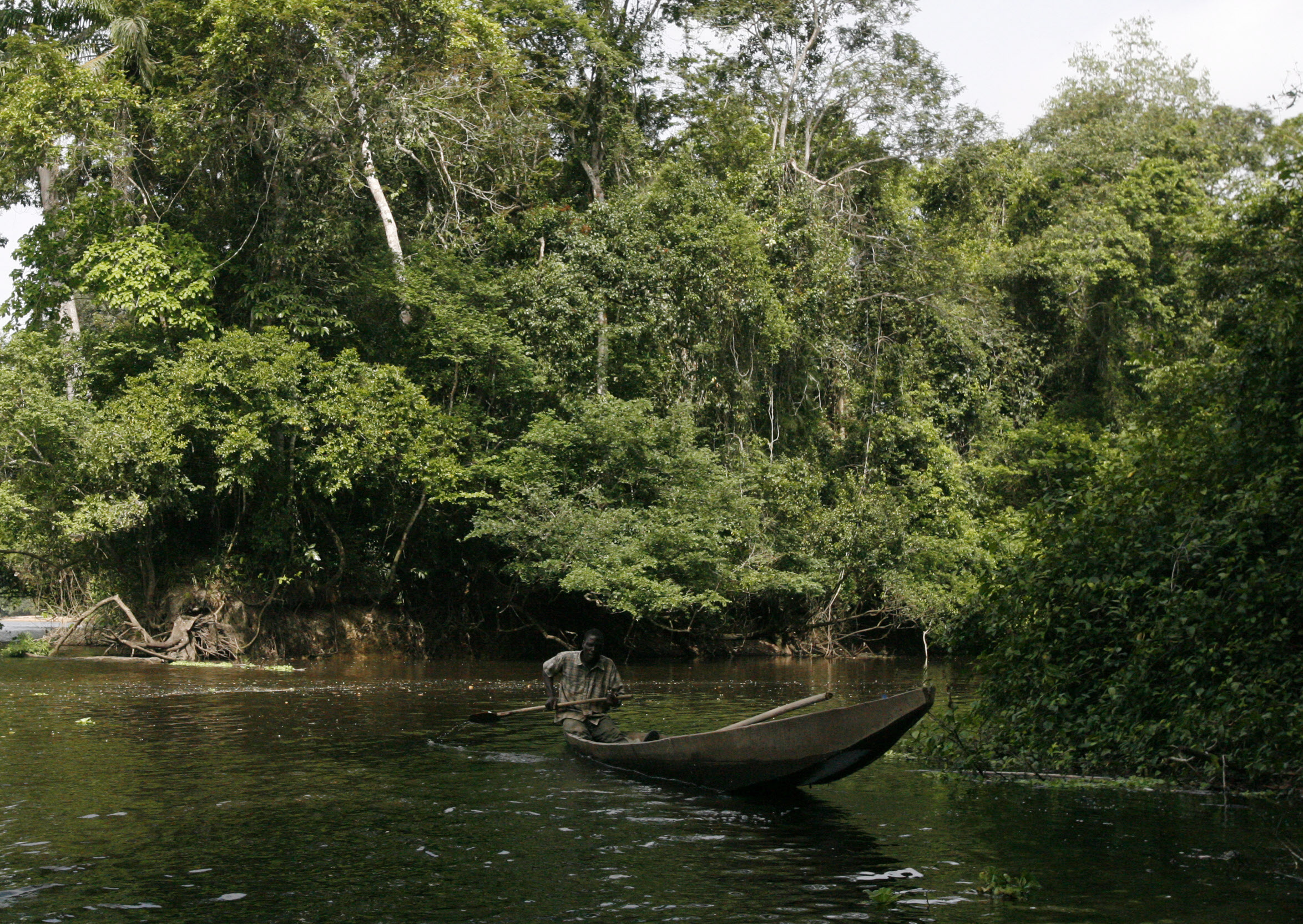Big companies get ready for a contentious political season

Our analysis of what the biggest global companies in Switzerland are up to. This week: companies mixed up in politics and foreign aid, plus deforestation and deals with China.
Chief executives at the big multinationals usually try to stay on the political sidelines and leave the lobbying to the lobbyists. But it isn’t always easy when the stakes are high.
In a few weeks, the Swiss will go to the polls (or mail in their ballots) in the latest display of Swiss direct democracy. There are plenty of vote issues stirring debate in the country including a fighter jet deal, paternity leave and changes to the hunting law.
What’s creating the most unease among multinationals though is an initiative brought by the right-wing Swiss People’s Party to curb immigration across Swiss borders, otherwise known as the free movement of people principle at the heart of the European Union. The vote is far from simply symbolic as it could have huge ramifications for non-member Switzerland’s relationship with the EU.
For big multinationals in Switzerland, foreign talent is so important that it isn’t surprising that some have broken from their media rulebooks to offer some viewsExternal link on the subject. Not every company is ready to go as far as IKEA Switzerland, which has created an IKEA-branded instruction manualExternal link on how to vote in support of another Swiss vote issue – paternity leave – on September 27.
Swiss companies still face less public pressure to speak out on politically sensitive issues than their American or British peers. But that doesn’t mean CEOs here get a free pass.
This is especially true when it comes to the Responsible Business Initiative, which will be on the next Swiss ballot in November. In an interview in the German-language paper Neue Zürcher Zeitung, Novartis CEO Vasant Narasimhan was asked his views on the subject, to which he replied that the pharma company stands behind the spirit of the initiative but is concerned about implementation.
A Nestlé spokesperson also told a group of reporters on Friday that everyone agrees on the need to respect human rights. But the Swiss multinational was against the initiativeExternal link as it stands, arguing it would make companies more risk averse to the point that they might stop investing in certain countries.
This doesn’t even touch on what’s at stake in the presidential election in the US. For big companies, there’s no escape from politics in Switzerland or anywhere else this autumn.
What else has caught my eye?
Cautionary tales abound when it comes to mixing business and foreign aid. The Swiss government says it wants to “fully harness the potential of the private sector” in its work in poorer countries. It isn’t alone, but experience from other donor countries shows the Swiss government should tread carefully when working with big business on development projects.
Roche stays in the corona race with new diagnostic tests. Despite disappointing results for its drug Actemra as a Covid-19 treatment, Roche is still grabbing headlines thanks to news that it is launching a rapid antigen test for current coronavirus infections and another that differentiates between influenza and coronavirus.
What happens now? That’s the question on the minds of many school principals, airline CEOs, and employers. SWISS International Air Lines just announced a deal with Swiss start-up ender diagnosticsExternal link to use its rapid coronavirus test for long-haul cabin crew. Could more such deals be in the works?
More demands on the Swiss government to renegotiate a trade deal with China. The Society of Threatened Peoples and Campax, in a letter backed with more than 20,000 signatures, argues the government isn’t doing enough to prevent forced labour and that the six-year-old trade deal with China should include binding clauses to respect human rights.
This comes amid reports that one million Uighurs are being held in internment camps in Xinjiang province in northwest China and are forced to work in factories on behalf of well-known international brands.
Nestlé’s investment to address cocoa-related deforestation could backfire. Those familiar with the region explained that plans to compensate illegal cocoa farmers to stop cutting down the forest in Ivory Coast could actually incentivise more illegal cocoa production.

In compliance with the JTI standards
More: SWI swissinfo.ch certified by the Journalism Trust Initiative





You can find an overview of ongoing debates with our journalists here. Please join us!
If you want to start a conversation about a topic raised in this article or want to report factual errors, email us at english@swissinfo.ch.